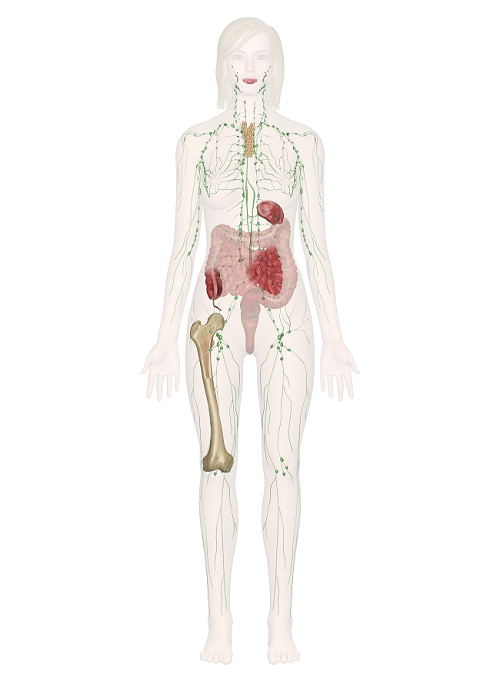You may not think that there is much in the way of defense during pregnancy, but they are more interconnected. When you’re pregnant, your pregnancy immune system changes rapidly.
In fact, the immune system and pregnancy have an incredible combination of ingredients that help you get pregnant, stay pregnant, and give birth to a baby, while simultaneously making you more infected with the disease.
During pregnancy, the mother’s immune system continues to flow. Although it is now widely accepted that there is a close relationship between maternal and fetal cells to support a healthy pregnancy, many studies have used mouse models to investigate this – but mice are not humans.
Pregnancy changes the immune system:
Although the original belief was believed to be that the pregnancy immune system is weakened during pregnancy, the recent research by doctors in Science Immunology to prevent the fetus from attacking the fetus has shown that transplantation is an effective preventive measure.
Doctor’s research shows that the strengths or weaknesses of the defense system are the right time for both mothers and babies to achieve the best results. In order to successfully implantation an embryo, the defense cells are enclosed in the uterus and cause inflammation.
The advanced state of the immune system lasts until the first 12 weeks of pregnancy, allowing the unborn baby to be fully established. Over the next 15 weeks, the mother’s immune system is suppressed to allow the growth and development of embryonic cells.
Some of these embryos contain antigens from the father that can be attacked if the immune system is running at full speed. An aggressive defense system returns to delivery, when inflammation helps in labor reactions.
You are more likely to get sick during pregnancy:
With your immune system changed, you are at increased risk for certain diseases, such as colds, flu, food poisoning and urinary tract infections. According to doctor a board-certified specialist at OBGYN, a high-risk maternal fetus medicine and booster, changes in the immune system are likely to lead to certain viruses, bacteria and parasites.
Make sure that most babies are not harmed if their mother becomes ill during pregnancy. But some infections can infect babies during the placenta or birth, and when it does, it can have serious consequences for the baby.
How to get rid of getting sick during Pregnancy:
You cannot avoid the source of all diseases while you are pregnant but you can take steps to reduce your chances of getting sick and reduce the risk of serious problems for you or your baby:
Take maternity vitamins and eat a balanced diet: A major issue in terms of doctor resistance Vitamins C and Vitamin B6 can boost your immune system by boosting the natural production of your interferon.
Doctors recommend getting this vitamin from natural sources for example, vitamin B6, more green vegetables and chicken and peas.
Take appropriate precautions: Basic precautions for pregnancy immune system such as washing hands, sharing glasses or utensils, and staying away from sick people will reduce your risk of contracting the disease.
See your doctor: If you are sick during pregnancy, schedule an appointment with a doctor to ensure the health of you and your baby. Many over-the-counter remedies during pregnancy are relatively safe, but all medicines should be prescribed by your doctor.
Stay up to date on vaccinations: Doctors emphasizes that you should be vaccinated before you become pregnant. When you are pregnant, be sure to get the flu season and the Tdap (Tetanus, Diphtheria, and Peruses) vaccine in the third trimester.
Flux immune system:
In order to allow the developing embryo to transplant, some of its cells actively attack the uterine line. It leads to an inflammatory cascade, similar to what happens during wound healing.
If inflammation is prevented, transplantation cannot proceed, highlighting the importance of inflammatory molecules and cells in this process. This pro-inflammatory environment focuses on the first 12 weeks of pregnancy.
Over the next 15 weeks, the developing embryo is in a state of rapid growth and development. Anti-inflammatory cells and molecules predominate.
Some embryonic cells express cell surface markers or antigens, which originate from the father. Under normal circumstances, the mother’s defense system recognizes them as foreigners and attacks the cells.
Low-level triggers are associated with abortion:
In the final stages of pregnancy, the pregnancy immune system returns to a pro-inflammatory state. Without it the mother cannot give birth Initial labor, in turn, may be associated with abnormal defense reactions.
How the immune system is used during pregnancy, and many scientists believe that the mother has a role in the micro biome.
Microbial passengers in the immune system:
Above too many years, it was thought that the baby received its first dose of microbes at birth, but recent studies have shown that the baby’s first stool contains microorganisms, which means transferring the baby from the mother of the microbial species to the fetus before the baby is born.
Are pregnant women more at risk for infectious diseases?
The concept of contraception has created a myth of pregnancy that is a state of immunological weakness and therefore increases the susceptibility to infectious diseases. To discuss this question we will first review some basic concepts related to the immune e system and pregnancy.
One of the most important features of a defense system is that it protects the host from pathogens. This task depends on the ability of the underlying defense system to coordinate cell migration for monitoring and to identify and respond to invading microorganisms.
In normal pregnancies, human deciduas contain a large number of defense cells, such as macrophages, natural killer (NK) cells, and regulatory T cells. Macrophage and 1.7% are deciduas cells.
During the first trimester, NK cells, dendritic cells, and macrophages enter the deciduas and accumulate in invading trophoblast cells. Deletion of macrophage, NK cells, or dendritic cells (DCs) has a destructive effect. Studies of Elegant have shown that trophoblast cells are not able to reach endometrial vascularity in the absence of NK cells.
The study found that NK cells are important for trophoblast attacks in the uterus. Similarly, reduced DC prevents blastocyst transplantation and accidental formation.15 In fact, this study shows that uDC is essential for the accidental formation and can affect the enzyme response by preventing the maturation of the bloodstream.
The new study provides detailed in-depth information:
Along with their new study, doctors add to the existing knowledge that different populations of pregnancy immune system cells are present during pregnancy.
The study included 18 women who had a normal pregnancy and donated blood samples every three months and 6 weeks after delivery. Researchers were able to obtain complete information from the sample using a method called Moon Cytometry, which cells were present in the blood, how they reacted to bacteria and which signaling pathways were more active for the pregnancy immune system.
By incorporating this information into an improved statistical model, the team can create a state-of-the-art map of how the defense system is adapted during pregnancy.
Next on the list is a comparative study using women’s blood samples, which those who gave birth prematurely, to see if it comes with a continuous change in the pregnancy immune system. The team hopes to use this knowledge for blood tests that may indicate the risk of a mother giving birth.
Doctors are especially interested in understanding more precisely what is happening very early and very late in pregnancy, “Doctors explain that they have like to see if there is really A switch that we can catch, a sweet spot where the deviation from the norm will be maximal with pathology. “
What will the future hold?
Western food and modern lifestyles have a detrimental effect on microbial passengers that are associated with our health. Decreased microbial diversity is associated with many medical conditions the only question left was whether it had an effect on the immune system during pregnancy.
Does low microbial diversity increase the risk of pregnancy or preterm delivery?

